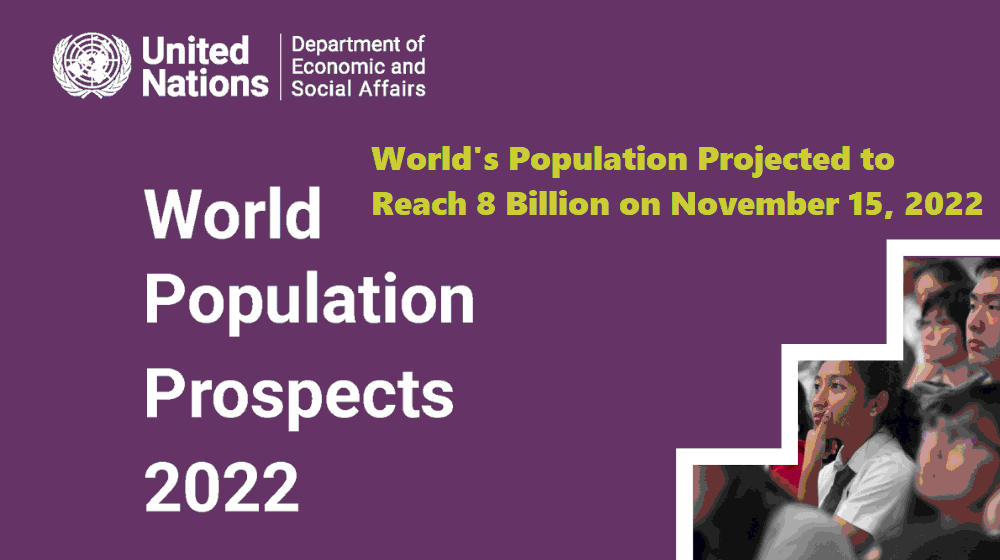
According to the World Population Prospects 2022 report released by the United Nations Department of Economic and Social Affairs, the world's population will reach 8 billion on November 15, 2022.
According to Natalia Kanem, head of the United Nations Population Fund, this event is going to be a turning point in human history. Because now the death of mother and child will be less.
Natalia says that she is not afraid of the growing human population, but she is afraid that the consumption of resources will increase rapidly. He said that all the countries of the world should pay attention to the use of resources and countries with high fertility rates should be more aware.
According to the World Wildlife Fund and the Global Footprint Network, the rate at which the human population is increasing will deplete our Earth's resources. In other words, there should be an increase of 75 percent in the earth's resources. But this is not possible.
According to the United Nations report on climate change, the main reason for increasing greenhouse gas emissions is the growing population. On the other hand, the growing population is helping less in economic development.
According to the United Nations report, by 2050, 8 countries in the world will experience the fastest population growth. It includes Congo, Egypt, Ethiopia, India, Nigeria, Pakistan, Philippines, and Tanzania. Half of the population growth by 2050 will come from sub-Saharan Africa.
The United Nations report states that the world population is projected to reach 8.5 billion in 2030 and 9.7 billion in 2050 and 11.2 billion by 2100. As with any type of projection, there is a degree of uncertainty surrounding these latest populations. Estimate.
These figures are based on the medium projection version, which assumes a decline in fertility for countries where large families are still prevalent, as well as a modest increase in fertility for many countries with fewer than two children per woman per year. Survival prospects are also estimated to be better in all countries. The United Nations also projected that in 2050 the United States would remain the third most populous country in the world, behind India and China. Nigeria is projected to be number 4, followed by Pakistan, Indonesia, Brazil, Congo, Ethiopia and Bangladesh.
Russia and Mexico, which are among the top 10 most populous countries in 2022, are projected to lose their ninth and 10th positions in 2050. ," the report said. "Among countries with populations of at least half a million, the largest relative reductions in population size over that period were Bulgaria, Latvia, Lithuania, Serbia and Ukraine, with losses of 20 percent or more. Among other highlights, the report noted that global life expectancy has improved by almost 9 years since 1990 – 72.8 years for children born in 2019 – and is projected to reach 77.2 years in 2050. as death rates continue to decline. But in 2021, it said, life expectancy in the world's poorest countries is 7 years behind the global average.
China and India - the most populous countries. The UN report also mentions that sixty-one percent of the global population lives in Asia (4.7 billion), 17 percent in Africa (1.3 billion), 10 percent in Europe (750 million), 8 percent in Latin America and the Caribbean (650 million), and the remaining 5 percent in North America (370 million) and Oceania (43 million). China (1.44 billion) and India (1.39 billion) remain the world's two most populous countries, both with more than 1 billion people, representing 19 and 18 percent of the world's population, respectively. Around 2027, India is projected to overtake China as the world's most populous country, while China's population is projected to decline by 31.4 million, or about 2.2 percent, between 2019 and 2050.





